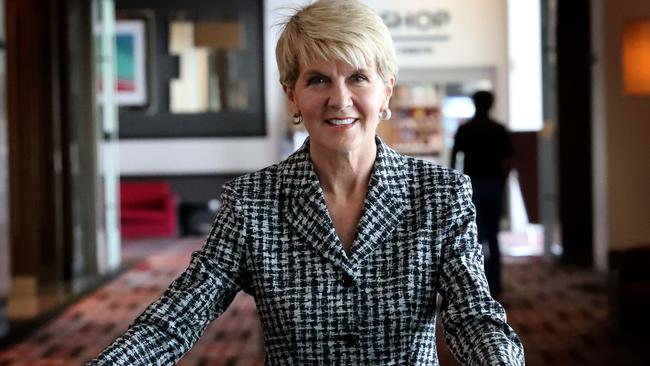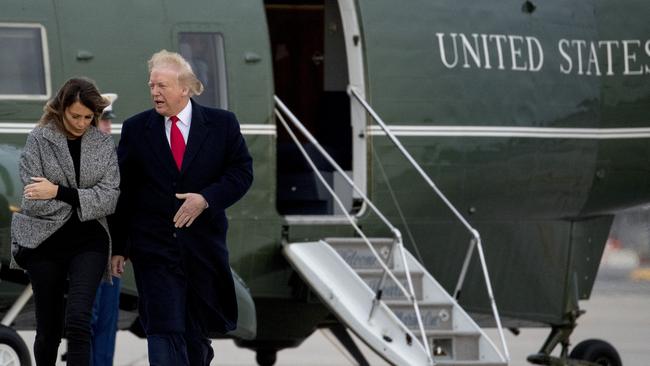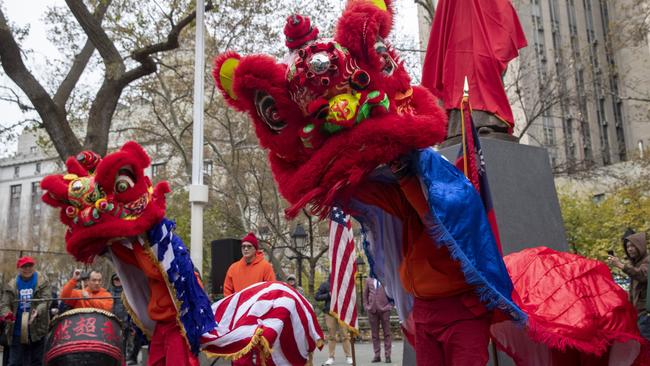Former foreign minister Julie Bishop warns of economic breakdown if US-China trade talks fail
Julie Bishop warns global economy will suffer if trade negotiations between the US and China break down.

Former foreign minister Julie Bishop has called for Australia to be a voice of reason and moderation on the global stage as she warned the global economy would suffer if trade negotiations between the US and China break down ahead of the 2020 US election.
Speaking at a conference in Melbourne, Ms Bishop also urged Australian business and government leaders to embrace the opportunities brought by “this time of unprecedented change”.
READ MORE: How a cooling trade war could affect interest rates and shares | US-China trade war hitting commodity prices
“We’ve got to be nimble and flexible. We’ll have to take risks but calculated risks. And we also have to think long term so we can help shape events, not just react to them,” she said.
Australia must back itself through the trade war and work with countries to bolster and defend the rules-based international order, she said.

“No one wins from a trade war. Yet I’m concerned that current negotiations between President Trump and President Xi Jinping will be hijacked by the 2020 election, as the TPP was [in 2016]. Even the democratic candidates are saying they will be tougher on China than Trump. Trump can’t afford to be seen as weak, and neither can Xi Jinping. So we’re going to have a stalemate.
“The closer we get to the 2020 election the more concerned I am, and this will affect the global economy,” she said.
A cold war on technology between the US and China was a parallel conflict, Ms Bishop said. The US decision to blacklist eight Chinese technology companies, including Huawei, meant there was a “great fracture” in the world, with the US and China creating two separate technological worlds.
“Where does that leave Australia? For the first time our major trading partner is not our defence, strategic and intelligence partner. And these two are in conflict.

“So who should Australia back? We must back ourselves. We have benefited from rules-based international order. We are completing our 28th year of growth. We are an open, liberal democracy, export-oriented economy that depends on our ability to sell goods around the world.
We must work with countries to bolster and defend that rules-based order,” she said.
READ MORE: How the US presidential race will affect the ASX
Commenting on the growing inequality around the world and the belief that globalisation was the root cause, Ms Bishop, who was deputy leader of the Liberal Party from 2007 to 2018, said there was a misunderstanding between what governments can do and expectations of what they should do.
“There is a level of disillusionment around the world and pressure on governments to come up with solution.
“The rise of populism has created leaders who come up with simplistic answers to complex problems, and hold it out as a promise. We know that populist ideas might sound great but they don’t work. Open, liberal trade creates wealth. We need to do far more to inform voters of what governments can and can’t do,” she told the audience.



To join the conversation, please log in. Don't have an account? Register
Join the conversation, you are commenting as Logout